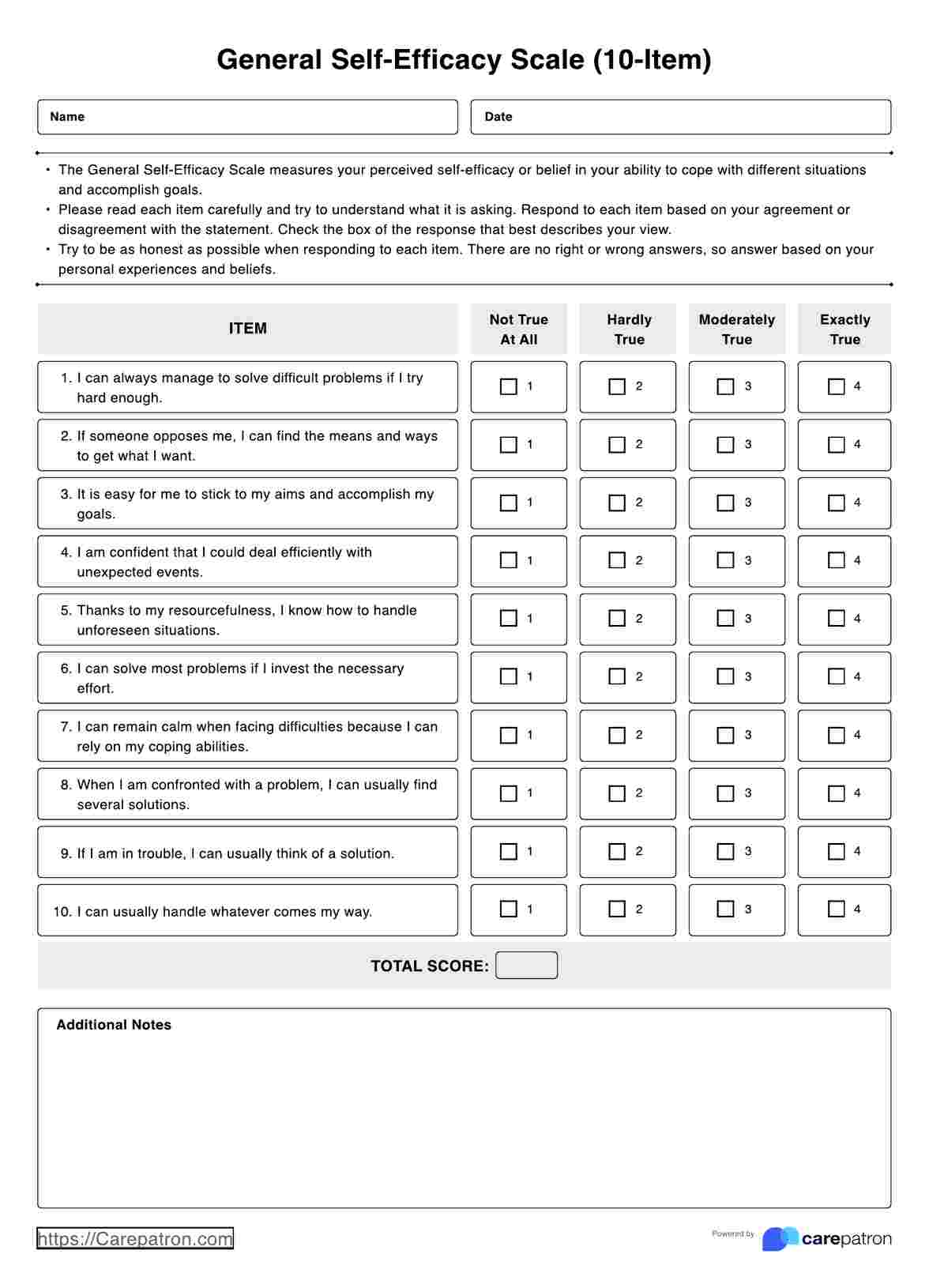Matthias Jerusalem and Ralf Schwarzer created the General Self-Efficacy Scale in 1981 in Germany.

General Self-Efficacy Scale (GSE)
Evaluate your patient’s perceived self-efficacy using the General Self-Efficacy Scale (GSE). Get access to a free PDF template and example for your practice.
Use Template
General Self-Efficacy Scale (GSE) Template
Commonly asked questions
The GSE Scale has 10 items scored on a scale from 1 to 4. A higher score indicates that the patient has a higher level of self-efficacy.
The GSE Scale measures the patient’s confidence in handling difficult situations. It is a valuable tool for mental health professionals looking to assess a patient’s level of self-efficacy.
EHR and practice management software
Get started for free
*No credit card required
Free
$0/usd
Unlimited clients
Telehealth
1GB of storage
Client portal text
Automated billing and online payments











